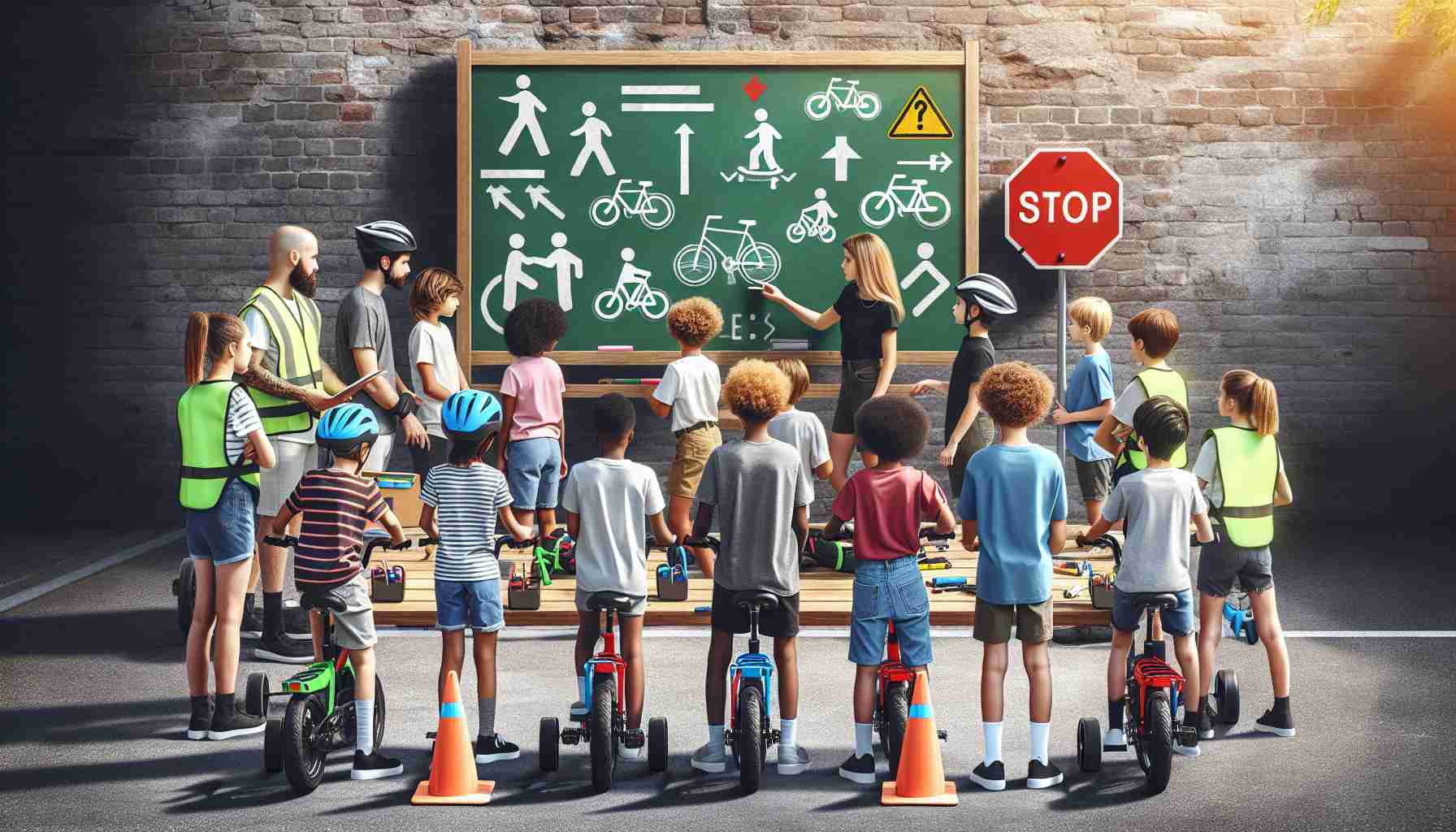Motorized electric bicycles, commonly known as e-bikes, have become increasingly popular among Marin residents in recent years. While these eco-friendly vehicles offer an efficient mode of transportation, they also pose safety risks, particularly when operated by young riders who may be unaware of the rules of the road. It is crucial to educate and regulate young e-bike riders to ensure the safety of both themselves and the community.
According to a U.S. Consumer Product Safety Commission report, approximately 36% of e-bike injuries occurred in children 14 years old and younger. These vehicles, resembling motorcycles, can reach dangerous speeds that regular bicycles typically do not. With many high and middle school students using e-bikes to commute to and from school, the presence of inexperienced riders on the roads can be a significant risk factor for accidents.
The lack of knowledge among young e-bikers contributes to the concerning number of emergency department visits related to e-bikes, e-scooters, and hoverboards. To address this issue, regulations should be implemented to establish age restrictions and mandatory training for e-bikers. Currently, there are no age restrictions for class 1 and 2 e-bikes, which can reach speeds of up to 20 mph. For class 3 e-bikes, reaching speeds of up to 28 mph, a minimum age requirement of 16 is necessary.
Unlike obtaining a driver’s license, where strict age requirements are enforced, there are minimal regulations regarding the age restrictions for e-bikers. Additionally, the exemption of e-bikes from laws and requirements that apply to motorcycles and automobiles further compounds the issue.
To improve community safety without banning e-bikes, several solutions can be explored. Equipping riders with the necessary skills to navigate both pedestrian paths and roads is crucial. Parents and local law enforcement must take responsibility for ensuring that e-bikers riding on the streets are at least 16 years old. Furthermore, speed restrictions on pedestrian paths should be enforced, particularly in areas with a constant flow of activity.
While e-bikes offer numerous benefits, including environmental friendliness and accessibility, it is essential to prioritize community safety. Implementing education and regulations for young e-bike riders can help mitigate risks and ensure a safer environment for everyone.
The motorized electric bicycle industry has experienced significant growth in recent years, as e-bikes have become increasingly popular among residents in Marin and across the country. These eco-friendly vehicles offer an efficient mode of transportation, allowing individuals to travel longer distances without relying solely on human power. However, with the rise in e-bike usage, safety concerns have emerged, particularly when it comes to young riders who may not be familiar with the rules of the road.
According to a report from the U.S. Consumer Product Safety Commission, a concerning 36% of e-bike injuries occur in children 14 years old and younger. This statistic highlights the need for increased education and regulation for young e-bike riders to ensure their safety as well as the safety of the community. Unlike traditional bicycles, e-bikes can reach higher speeds, similar to motorcycles, making them potentially more dangerous if operated improperly.
Furthermore, the lack of knowledge among young e-bikers contributes to the high number of emergency department visits related to e-bikes, e-scooters, and hoverboards. These incidents could be reduced through the implementation of regulations that establish age restrictions and mandatory training for e-bike riders. Currently, there are no specific age restrictions for class 1 and 2 e-bikes, which can reach speeds of up to 20 mph. For class 3 e-bikes, which can reach speeds of up to 28 mph, a minimum age requirement of 16 years old should be considered.
Compared to obtaining a driver’s license, where strict age requirements are enforced, the regulations regarding age restrictions for e-bike riders are minimal. Additionally, the exemption of e-bikes from certain laws and requirements that apply to motorcycles and automobiles further complicates the issue. It is crucial to address these regulatory gaps to ensure the safety of e-bike riders, particularly younger individuals.
To improve community safety without outright banning e-bikes, there are several solutions that can be explored. One approach is to provide comprehensive education and training programs to equip riders with the necessary skills to navigate both pedestrian paths and roads safely. Parents, in collaboration with local law enforcement, should take responsibility for ensuring that e-bikers riding on the streets are at least 16 years old. Additionally, speed restrictions on pedestrian paths should be enforced, especially in areas with a high level of pedestrian activity.
While e-bikes offer numerous benefits, including environmental friendliness and accessibility, it is essential to prioritize community safety. By implementing education and regulations for young e-bike riders, the risks associated with these vehicles can be mitigated, creating a safer environment for everyone. For additional information on e-bike safety and regulations, you can visit the NHTSA website, which provides resources and guidelines for electric bicycles and other road vehicles.







